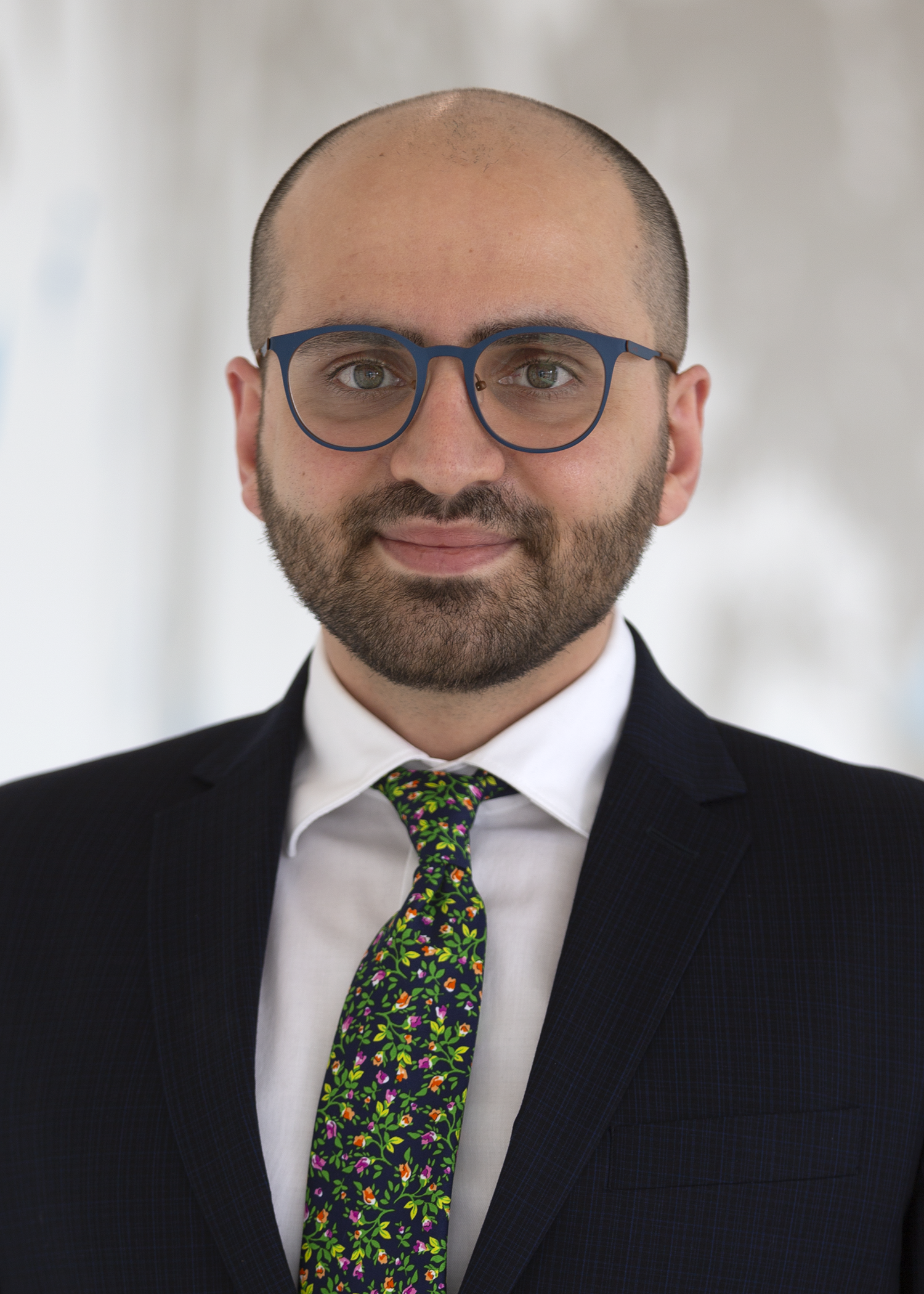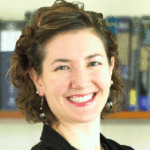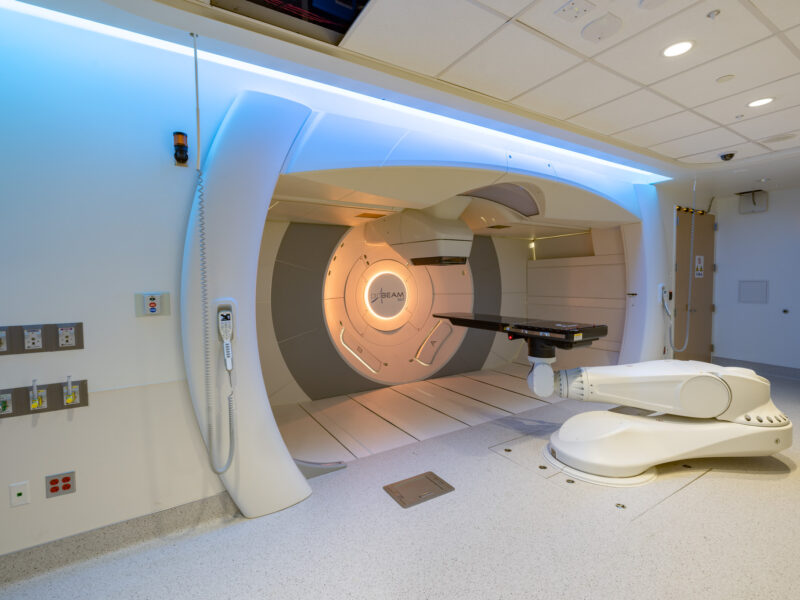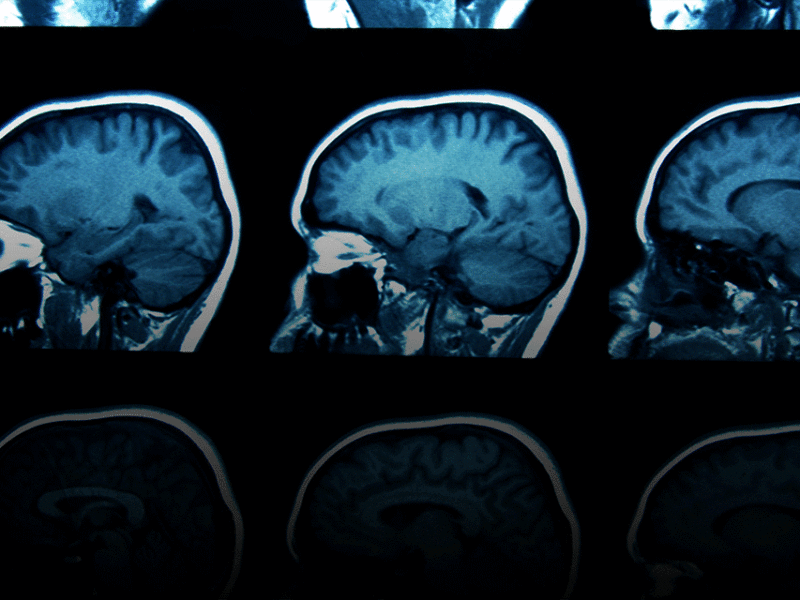Featured Researcher — Meisam Naeimi Kararoudi, DVM, PhD
Featured Researcher — Meisam Naeimi Kararoudi, DVM, PhD https://pediatricsnationwide.org/wp-content/themes/corpus/images/empty/thumbnail.jpg 150 150 Katie Brind'Amour, PhD, MS, CHES Katie Brind'Amour, PhD, MS, CHES https://pediatricsnationwide.org/wp-content/uploads/2021/03/Katie-B-portrait.gif- April 28, 2023
- Katie Brind'Amour, PhD, MS, CHES
Meisam Naeimi Kararoudi, DVM, PhD, director of the CRISPR/Gene Editing Core and principal investigator in the Center for Childhood Cancer Research at Nationwide Children’s, has taken a winding, international road to his current role at Nationwide Children’s Hospital.
From his native Iran to Italy, England, Sweden and the United States, Dr. Naeimi Kararoudi has collected skills across cardiovascular medicine, veterinary care, gene editing and immunotherapy research — and in five languages.
By the time he joined the lab of Dean Lee, MD, PhD, director of the Cellular Therapy and Cancer Immunology Program at Nationwide Children’s, about 6 years ago as a postdoctoral fellow, Dr. Naeimi Kararoudi was well-primed to work with its team on optimizing production of gene-edited natural killer (NK) cells, a challenge that had plagued the research community for years. Six months after he joined, the problem was solved.

Now, the possibilities for off-the-shelf NK-based therapies for a wide range of cancers are under widespread clinical study.
Dr. Naeimi Kararoudi continues to leave his mark on both the scientific reputation and research infrastructure at Nationwide Children’s and beyond — training scientists from low- and middle-income countries in techniques for clinical development of gene-edited cell therapies. He continues to publish improvements to gene-edited NK and T-cell cancer immunotherapy research, and his passion for medical science and challenging research questions has driven him to grow both his own endeavors and those of his colleagues in the CRISPR/Gene Editing Core, where he oversees nearly 30 in-progress CRISPR research endeavors.
Read on to learn more about Dr. Nelson and his work.
What was your path to your current role?
I received my veterinary surgery degree in Iran. Next, I completed cardiovascular medicine work while obtaining my doctorate from the University of Perugia in Italy. Then, I got a scholarship to move to Oxford, where I learned about CRISPR and genome editing.
I wanted to be in the field of cancer immunotherapy using genome editing of NK or T cells. The opportunity to combine my veterinary medicine background and my skills in gene editing with immunology work brought me to Sweden.
I love the fact that as a scientist, you wake up every morning with problems to solve that no one has ever conquered before. That’s why I went into research.
Why did you decide to pursue your work at Nationwide Children’s?
I had heard of Dr. Lee, who was at MD Anderson at the time. I reached out to him and asked him to have me as his postdoctoral investigator. He told me he was coming to Nationwide Children’s and asked if I wanted to join him here, and I said, “Absolutely!”
I have worked in many different institutions, and none of them have had the wide diversity in faculty and scientific research, the friendship opportunities and the rich collaborative environment that Nationwide Children’s does. That’s why, when I was offered the chance to stay here as a faculty member, I accepted with no doubts.
What is your favorite part of your job?
The fact that I am blessed with the opportunity to help kids — that’s it.
How does your research serve our patients and community?
Genome editing is quite a new field with much to be discovered. Part of my job is to keep 30 different projects going at the same time, which gives me the chance to be involved in many different areas of medical science, finding ways to use CRISPR technology for everything from neuromuscular disorders and organ failure to bone marrow transplant and cancers. We’re screening a huge range of diseases to find can be treated by genome editing. I get to serve patients in all those areas through the ongoing projects.
As far as my own research, we are genome-editing immune cells so they can recognize and kill cancer cells in a more efficient way or with fewer side effects than traditional chemotherapy regimens. These cells already function primarily to recognize cancer and kill it, but we can develop products that make them way better at their job. One is now in clinical production so we can ultimately treat patients.
Fun Facts About Dr. Naeimi Kararoudi
What’s your favorite word?
“Posh” is a word everyone knows me for. I learned English in Oxford, and “posh” is a common British word I still like to use. I even switch my accent to British English when I use it.
What do you usually eat for breakfast?
My wife is Turkish, and her culture has a very strong breakfast tradition, so I have a Mediterranean breakfast — an omelet, olives, toast with melted cheese and some veggies — something sweet, like a chocolate croissant, and a cup of coffee almost every day.
What would be your dream job, besides working in research?
When I was 3, and people asked what I wanted to be, I said a professor, even though I didn’t know what it was. But here I am, a professor. This is my dream job.
What’s your favorite food?
Mirzaghasemi, a traditional Iranian dish from Rasht by the Caspian Sea, the coastal region I am from, is my favorite. It is an eggplant or fried fish dish served next to kebab.
Favorite genre of music?
My favorite music is jazz, because I play a bit of harmonica. My other favorite genres are traditional Persian music and American country music — especially country music with lots of harmonica in it.
Favorite way to relax?
I have a few favorites. I pray, I’m a Judo athlete and at night my wife and I will watch TV together — if our son is asleep early enough!
It is an honor to play a role in improving cancer treatments for patients who need less-toxic options.
What’s next?
I would like to find a way to deliver CRISPR genome editing to patients more efficiently. I also want to make these technologies and therapies more accessible to low- and middle-income countries. That is my dream: making the therapies available to anyone who needs them. You first need to know what products can be off-the-shelf and plan for that during development. That requires training scientists and physicians in those countries, which I have been working to do, and decreasing the cost of manufacturing cell and gene therapies by developing infrastructure.
About the author
Katherine (Katie) Brind’Amour is a freelance medical and health science writer based in Pennsylvania. She has written about nearly every therapeutic area for patients, doctors and the general public. Dr. Brind’Amour specializes in health literacy and patient education. She completed her BS and MS degrees in Biology at Arizona State University and her PhD in Health Services Management and Policy at The Ohio State University. She is a Certified Health Education Specialist and is interested in health promotion via health programs and the communication of medical information.
-
Katie Brind'Amour, PhD, MS, CHEShttps://pediatricsnationwide.org/author/katie-brindamour-phd-ms-ches/April 27, 2014
-
Katie Brind'Amour, PhD, MS, CHEShttps://pediatricsnationwide.org/author/katie-brindamour-phd-ms-ches/April 27, 2014
-
Katie Brind'Amour, PhD, MS, CHEShttps://pediatricsnationwide.org/author/katie-brindamour-phd-ms-ches/April 27, 2014
-
Katie Brind'Amour, PhD, MS, CHEShttps://pediatricsnationwide.org/author/katie-brindamour-phd-ms-ches/April 28, 2014
- Posted In:
- Featured Researchers
- Research







